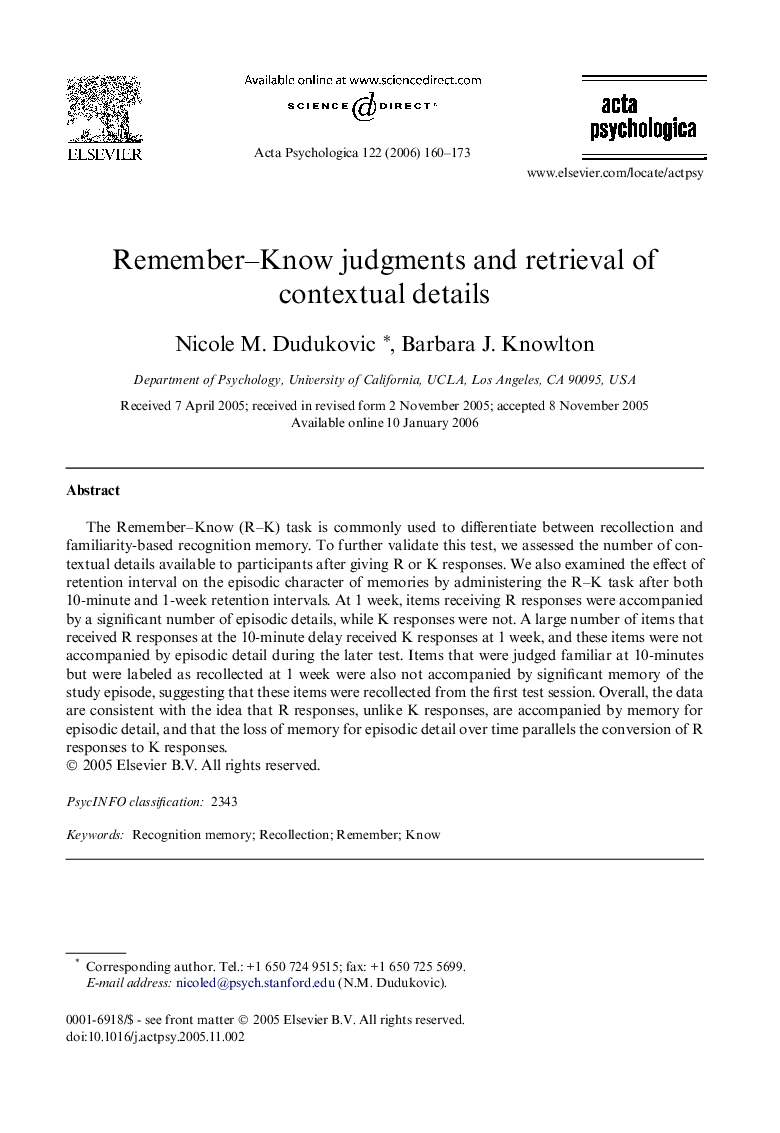| Article ID | Journal | Published Year | Pages | File Type |
|---|---|---|---|---|
| 920671 | Acta Psychologica | 2006 | 14 Pages |
The Remember–Know (R–K) task is commonly used to differentiate between recollection and familiarity-based recognition memory. To further validate this test, we assessed the number of contextual details available to participants after giving R or K responses. We also examined the effect of retention interval on the episodic character of memories by administering the R–K task after both 10-minute and 1-week retention intervals. At 1 week, items receiving R responses were accompanied by a significant number of episodic details, while K responses were not. A large number of items that received R responses at the 10-minute delay received K responses at 1 week, and these items were not accompanied by episodic detail during the later test. Items that were judged familiar at 10-minutes but were labeled as recollected at 1 week were also not accompanied by significant memory of the study episode, suggesting that these items were recollected from the first test session. Overall, the data are consistent with the idea that R responses, unlike K responses, are accompanied by memory for episodic detail, and that the loss of memory for episodic detail over time parallels the conversion of R responses to K responses.
